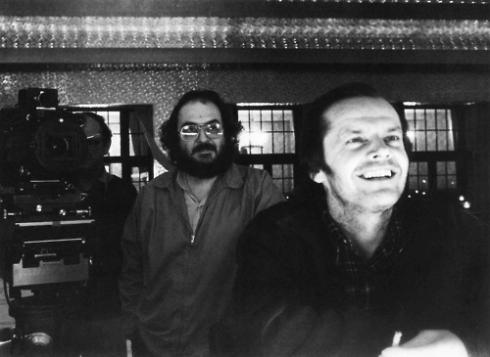Common Mistakes Directors Make When Adapting a Book into a Movie
By Zoe Baker | 07-Jun-2017

News that a certain beloved book is being adapted into a movie or even worse, a blockbuster, is concomitantly met with both joy and dismay by the same category of people - the fans. Simply put, with a few exceptions, a movie adaptation will almost always disappoint die-hard fans. This happens because some unspoken elements and feelings cannot be transmitted via a screen over 120 minutes.
Having recently discovered the possibilities offered by science fiction, Hollywood movie directors have a brand-new genre to cannibalize on the big screen. Looking to make a profit, studios are jumping on the creative-destructive bandwagon toward more and more adaptations. Here are some of the most common mistakes that directors should avoid doing in the future.
1. They don’t understand the book
The directors act as translators of the book for those who watch the movie. If they don’t understand the original source, the message they are conveying is corrupted from the start. This was Stephen King's disappointment with Stanley Kubrick's adaptation of "The Shining".
Made with the intention of being a blockbuster, Kubrick's movie was successfully voided of its meaning. As King puts it "Kubrick just couldn't grasp the sheer inhuman evil of The Overlook Hotel, so he looked, instead, for evil in the characters and made the film into a domestic tragedy".
As a result, Kubrick was always reluctant to talk about the essence and meaning of the movie, what was the book's core strength. A counter-example would be the director of the Lord of the Rings trilogy, Peter Jackson. A fan of Tolkien's work, himself portraying a man eating a carrot in the town of Bree, Jackson successfully popularized the story while keeping much of its spirit.
2. They change the plot and shift the focus
Movies are unlike books because of a few reasons. Firstly, they are different mediums which require different degrees of effort and time. The reader base of a book is always going to be smaller than the viewership of a movie because movies hardly take any effort to watch. One could even multitask while having a movie run in the background.
Books, on the other hand, require more time, effort and an appropriate environment in order to be enjoyed. This allows them to drag on the action, develop characters and create a more personal connection with the reader.
Movies don't have this luxury. If they cannot dazzle the audience and keep it captivated, they will miserably flop. As such, directors and screenwriters take it upon themselves to alter the plot and shift the focus.
Scenes of a few minutes will have to condense an internal struggle of dozens of pages. The storyline will bend and twist so as to make sense and most of the space dedicated to character development is thrown out the window.
The result is an alienated fanbase. However, through this process of condensation, dramatization and simplification, the movie represents, for all intents and purposes, the more accessible version of the book. The hardcore nucleus of fans is therefore traded for the wider audience. Some directors manage to do this without affecting the quality of the story too much, others do not.
3. They keep a bad relationship with the author
Narrative strength and literary talent cannot find equivalents on screen. For that reason, many of the best pieces of modern literature will not and should not ever be adapted on screen. The authors that do fall into the maze of cinema often regret it. Examples are manifold, the most notable of which are Anthony Burgess ("A Clockwork Orange"), Winston Groom ("Forrest Gump"), Bret Easton Ellis ("American Psycho") and Ken Kesey ("One Flew Over the Cuckoo's Nest").
While some of the aforementioned movies are considered among the best ever made, the authors of the books upon which they were made were not impressed. Kesey claims to have never seen the movie, Ellis thinks that the "American Psycho" adaptation should never have been made and Groom was cut off from the profits and acknowledgements for "Forrest Gump". Similarly, Burgess entirely disliked "Clockwork Orange" because it seemed to be a glorification of sex and violence.
Making a movie adaptation of a novel should be the cooperative task of both author and director. Together, they have the highest chance of retaining the strengths of the book and transposing them onto the screen, even if some elements are omitted. Instead, authors are often seen storming off furiously, leaving the directors to patch up a cinematic 'Frankenstein' from the remains of the book.
To conclude, it is obvious that what makes a book good does not necessarily make the movie as good. However, moviemakers have an unspoken rule of keeping their screen adaptations as close as possible to the original books. Most often slaves to commercial interests, directors make do with what they're given and what is asked of them. Their work is never perfect, but with the right ingredients it can almost equally satisfy both die-hard fans of the books and the mass audiences that populate the cinemas.
Zoey Baker is an avid movie watcher with a BFA in video production. One of her dreams is to have the chance to direct and produce her own movie. She is now a contributing editor to StreamingMovieList.com.
Comments
